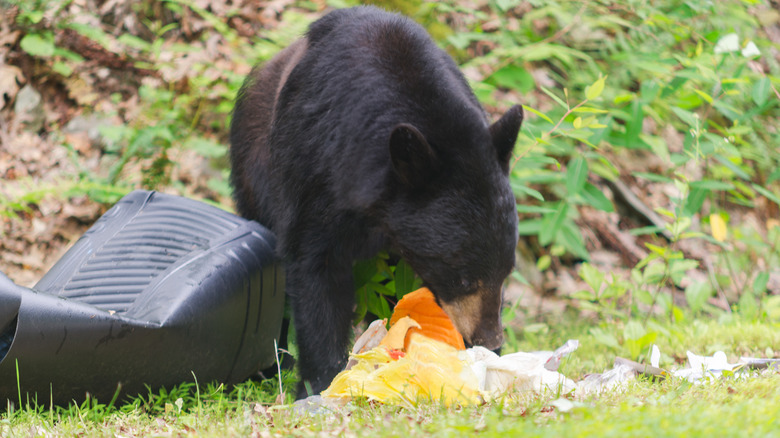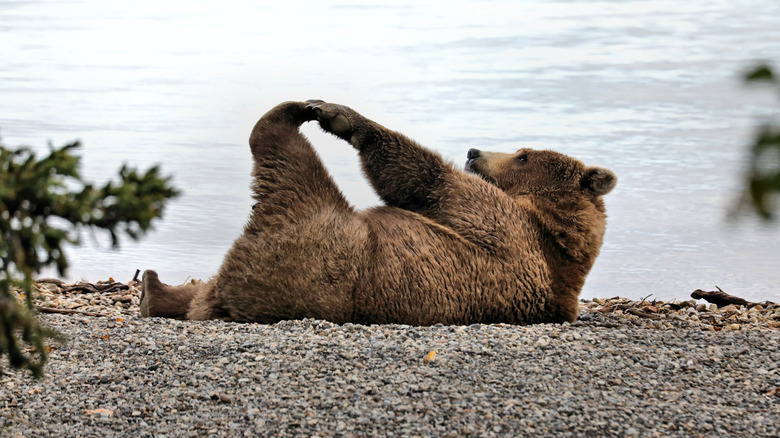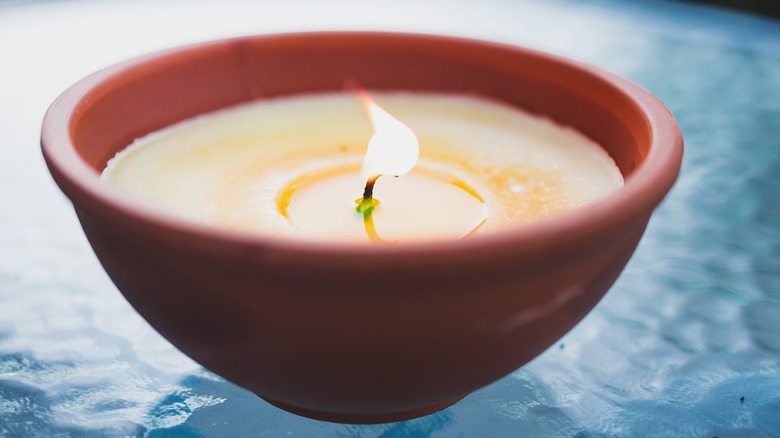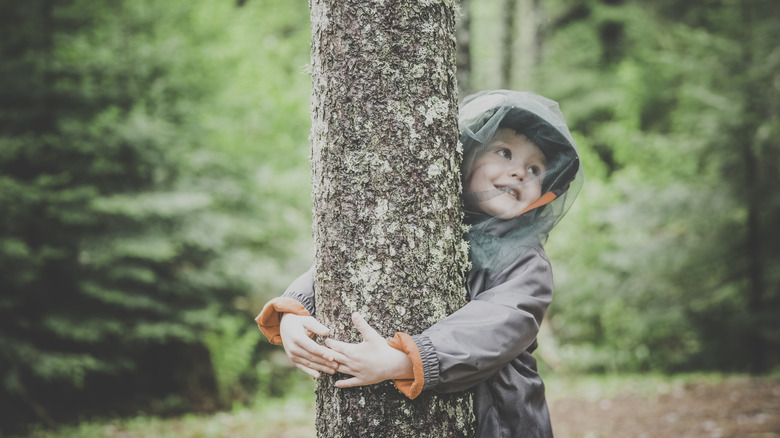The Unexpected Scent That Can Attract Bears To Your Campsite
When camping in bear territory, it's vital to keep anything that may attract bears either in bear-resistant containers or suspended more than 10 feet above the ground, and throw away all garbage in bear-proof trash containers or keep it locked in your trunk until you leave the wilderness. Everyone knows that bears are attracted to food and garbage in campsites, but unfortunately, many other objects have a scent that attracts bears, too. One of these is citronella candles.
Citronella candles are a common choice for campers who want to avoid getting covered in mosquito bites while sleeping in the woods without using heavy duty chemicals like DEET, but unfortunately, their strong citrusy scent may bring bears to your campsite. There is significant debate about whether or not citronella candles are actually good at keeping bugs away in the first place, so the tenuous benefits are definitely not worth the significant risk of attracting bears.
Why bears are attracted to citronella candles
Bears are certainly attracted to food, but their definition of what is edible is significantly more flexible than ours. They are drawn to campsites by their powerful noses, and will be attracted to almost anything with a smell. This can be actual food, but also includes garbage, soaps, sunscreens, perfumes, toiletries, and candles. Citronella candles have an infamously strong smell, so it's not surprising that bears may think they could be a source of food. This also applies to citronella oil worn on the skin or sprayed onto clothing in an attempt to repel bugs.
Burning these candles releases a lot of their signature citrusy smell which could certainly attract bears to your campsite — but it is also not a good idea to bring them with you at all unless they are stored safely in the trunk of your car or a bear proof storage container. Bears have very good senses of smell, and they will likely be able to smell the candle in your camp even if you don't light it.
Does citronella work anyway?
It makes sense that campers who are spending a significant amount of time outside would do whatever they can to avoid having mosquitoes biting them all day and all night, but citronella may not be the best choice of bug repellant, even without the risk of bears.
A 2017 study published in the Journal of Insect Science found that citronella did absolutely nothing to keep mosquitos away, and the bugs were perfectly happy to suck the blood of humans sitting near citronella candles. In fact, it seemed like some of the mosquitos may have even been slightly more interested in humans near a citronella candle than the humans without them — but there is not enough evidence to confirm that mosquitoes are attracted to citronella. "Mosquitoes are famously resilient, and there are nearly 175 species recognized in the U.S. alone, so there's a lot people don't yet know about their behavior," notes the AMCA's Joe Conlon to The New York Times. Either way, it doesn't seem to repel bugs while it does attract bears. It's certainly not worth the risk.
Alternatives to citronella
If citronella attracts bears to your campsite and doesn't do anything to keep bugs away, how can you keep mosquitoes away from you while you're sleeping outside? One option is certainly pesticides, but nature-lovers should know that there is no pesticide that kills adult mosquitoes that would not kill vital pollinators. Depending on the perfumes included in the particular brand of bug spray you choose, they may be just as tasty-smelling to bears as citronella, so proceed with caution.
You can reduce the mosquito population in your area by never leaving standing water for them to lay their eggs in. If there is water you can't avoid leaving around, you may want to add Bti, a bacteria that kills off mosquito larvae. This isn't possible on a hike or at a campsite however. Instead, you may want to wear socks, long pants and long sleeves made of a tightly woven material. Your tent should keep mosquitoes out, but you can also use mosquito netting to make sure they can't bite you in your sleep. Mosquitoes are also far more active in the morning and evenings, so you may want to do most of your activity in the day.



